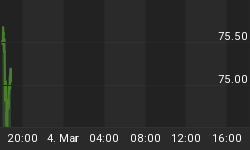Let's put aside for a merry moment the fact that, in the US, not only are most 5th graders smarter than their parents but, in fact, there appears to be an entire TV show devoted to commemorating this odd fact. (OK, let the archaeologists of the future sort that one out, probably at the very same time they are trying to decipher those mysterious glass fragments labelled 'Objects in mirror are closer than they appear.')
Let us instead content ourselves by divining the answer a 5th grader might likely provide if asked why people buy stocks -- or, indeed, why stocks exist in the first place?
"To participate in the growth of someone else's efforts," could possibly be the winning answer.
"To create a venture where the whole is greater than the sum of its parts, and allow strangers to enjoy the fruits," would have merited equal credit.
And, no coincidence, that is precisely how common stocks were 'explained' to investors for over a century. Joe puts time and effort into building a business. The business succeeds, but needs new cash to grow. Joe offers his venture to the public. The money Joe collects by selling shares is used to expand and build the business. The investors enjoy the growth. Win-win.
Meanwhile, back at the ranch, a thing called a "stock market" is there to provide encouragement and liquidity to those brave souls willing to hold Joe's shares in exchange for their hard-earned cash. This market is ultimately the grease that makes the wheels of commerce turn.
Somewhere near the end of the last century, we lost sight of the above and collectively determined (or, worse, allowed others to determine for us) that the grease was somehow more important than the wheel.
Somewhere near the end of the last century, modern-day robber barons appeared to boldly inform us that, in the case of a great many older, venerable firms, the sum of their parts was indeed worth more than the whole. And then proceeded, with hammer and saw, to prove it to us.
Somewhere near the end of the last century, day traders and arbitrageurs and 'quants' and their ilk appeared to prove that the stock market not only had inefficiencies (heck, all markets do) but that they, by exploiting such inefficiencies, could make more money in a single day than a regular investor, an old fashioned company-picker, could in a lifetime.
And so (as we argued in our article 'Subprime Reductio Ad absurdam') this new breed of player proceeded to take a market intended for one purpose and bend it to their will for quite another.
While the regulators stood by and did nothing.
(Well, not entirely. In many cases they actually encouraged these actions. In some cases -- we are talking "Guinness Book" oddities here -- senior executives from the private firms behind these strange new strategies would end up as the appointed government officials charged with protecting the markets from these very same strategies that they themselves had first foisted upon them.)
The Age of the Investment Banker was born. Parents should perhaps have become suspicious when their older siblings showed more interest in heading to Wall Street than in becoming a doctor or a lawyer...?
The end to this story is being written right now in today's newspapers. Our only hope that this resolves itself in less than a generation, because to leave such a mess to one's children is not merely embarrassing, it is unnatural.
Present generations are supposed to leave something other than 'dregs' for their progeny. It's just that simple.
And, while we're pointing fingers, societies aspiring for greatness probably need a higher standard than a 10 year old.
















